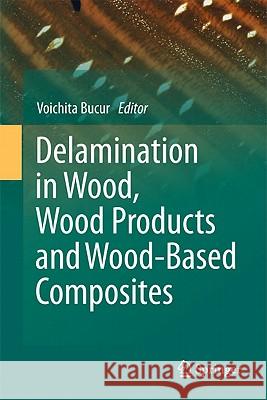Delamination in Wood, Wood Products and Wood-Based Composites » książka
Delamination in Wood, Wood Products and Wood-Based Composites
ISBN-13: 9789048195497 / Angielski / Twarda / 2010 / 401 str.
In the last quarter century, delamination has come to mean more than just a failure in adhesion between layers of bonded composite plies that might affect their load-bearing capacity. Ever-increasing computer power has meant that we can now detect and analyze delamination between, for example, cell walls in solid wood. This fast-moving and critically important field of study is covered in a book that provides everyone from manufacturers to research scientists the state of the art in wood delamination studies. Divided into three sections, the book first details the general aspects of the subject, from basic information including terminology, to the theoretical basis for the evaluation of delamination. A settled terminology in this subject area is a first key goal of the book, as the terms which describe delamination in wood and wood-based composites are numerous and often confusing. The second section examines different and highly specialized methods for delamination detection such as confocal laser scanning microscopy, light microscopy, scanning electron microscopy and ultrasonics. Ways in which NDE (non-destructive evaluation) can be employed to detect and locate defects are also covered. The book's final section focuses on the practical aspects of this defect in a wide range of wood products covering the spectrum from trees, logs, laminated panels and glued laminated timbers to parquet floors. Intended as a primary reference, this book covers everything from the microscopic, anatomical level of delamination within solid wood sections to an examination of the interface of wood and its surface coatings. It provides readers with the perspective of industry as well as laboratory and is thus a highly practical sourcebook for wood engineers working in manufacturing as well as a comprehensively referenced text for materials scientists wrestling with the theory underlying the subject.











